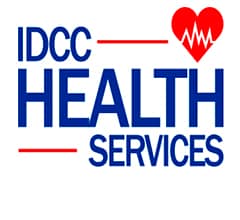There is increasing recognition of the importance of a holistic approach to health and wellness. Integrative medicine doctors are instrumental in this paradigm shift by combining conventional medical treatments with complementary and alternative therapies.
This article explores what a Doctor of Integrative Medicine is, their training and qualifications, the principles of integrative medicine, and how they can benefit patients seeking a more comprehensive and personalized approach to healthcare.
Book an appointment with an integrative medicine doctor today!

What Is Integrative Medicine Specialist?
Integrative Medicine is an approach to healthcare that combines the best of conventional medicine with evidence-based complementary and alternative therapies. The goal is to address the physical, emotional, and spiritual aspects of health and healing. This approach acknowledges that each individual is unique and may require a personalized treatment plan.
Requirements and Training to Become an Integrative Medicine Physician
To become a DIM, a healthcare professional typically follows these steps:
- Medical Degree: They start by earning a medical degree, such as an M.D. (Doctor of Medicine) or D.O. (Doctor of Osteopathy), through accredited medical schools.
- Residency: After medical school, they complete a residency program in a medical specialty, such as internal medicine, family medicine, or another specialty.
- Additional Training: DIMs pursue additional training in integrative medicine, which may involve fellowship programs, coursework, and hands-on experience in complementary and alternative therapies.
- Certification: Some DIMs seek certification in integrative medicine from organizations like the American Board of Integrative Holistic Medicine (ABIHM) or the American Board of Physician Specialties (ABPS).
Principles of Integrative Medicine
Integrative Medicine is guided by several key principles:
- Patient-Centered Care: The focus is on the patient as a whole person, not just a collection of symptoms. Treatment plans are tailored to individual needs and preferences.
- Consideration of All Factors: Integrative Medicine considers all factors that influence health, including lifestyle, environment, genetics, and mind-body connections.
- Combining Therapies: Conventional treatments are integrated with complementary and alternative therapies like acupuncture, nutrition, and mind-body practices.
- Prevention and Wellness: There is an emphasis on preventive measures and promoting overall well-being to reduce the risk of illness.
Benefits of Integrative Medicine and DIMs
1. Personalized Treatment
One of the primary benefits of working with a DIM is personalized treatment. They take the time to understand your unique health history, lifestyle, and preferences to create a tailored treatment plan that addresses your specific needs.
2. Holistic Approach
DIMs emphasize the importance of addressing the root causes of health issues rather than merely alleviating symptoms. This holistic approach can lead to more effective and sustainable results.
3. Reduced Reliance on Medications
Integrative Medicine often explores non-pharmacological approaches to health, which can lead to a reduced reliance on medications, especially for managing chronic conditions.
4. Enhanced Well-Being
Patients often report an improved sense of well-being and a greater understanding of their health through integrative medicine practices. This can lead to increased quality of life.
Promotes Balanced and Holistic Health
A Doctor of Integrative Medicine (DIM) is a healthcare professional who bridges the gap between conventional medicine and complementary and alternative therapies, providing patients with a holistic and personalized approach to health and wellness.
By considering all aspects of an individual’s health, DIMs aim to address the root causes of health issues, promote overall well-being, and reduce the reliance on medications when possible. If you are seeking a more comprehensive and patient-centered approach to healthcare, consulting a DIM may be a valuable step towards better health and healing.
Frequently Asked Questions (FAQs)
What conditions can a Doctor of Integrative Medicine treat?
DIMs can treat a wide range of conditions, including chronic pain, digestive disorders, autoimmune diseases, mental health issues, and more. They focus on addressing the root causes of health problems and promoting overall well-being.
Is Integrative Medicine covered by insurance?
Some aspects of Integrative Medicine, such as conventional medical treatments and diagnostics, may be covered by insurance. However, coverage for complementary and alternative therapies may vary depending on the insurance provider and specific plan.
How can I find a qualified Doctor of Integrative Medicine?
To find a qualified DIM, you can start by asking for referrals from your primary care physician or searching online directories of integrative medicine practitioners. It’s essential to verify their credentials and check if they are board-certified in integrative medicine.
What is the difference between functional and integrative medicine?
Functional medicine focuses on identifying and addressing the root causes of diseases through a personalized, evidence-based approach and lifestyle changes. It emphasizes detailed diagnostics and patient involvement in managing their health. Integrative medicine, on the other hand, combines conventional medical treatments with complementary therapies like acupuncture or yoga, aiming to address the whole person—body, mind, and spirit. It focuses on enhancing overall well-being through a collaborative approach among various healthcare practitioners.
